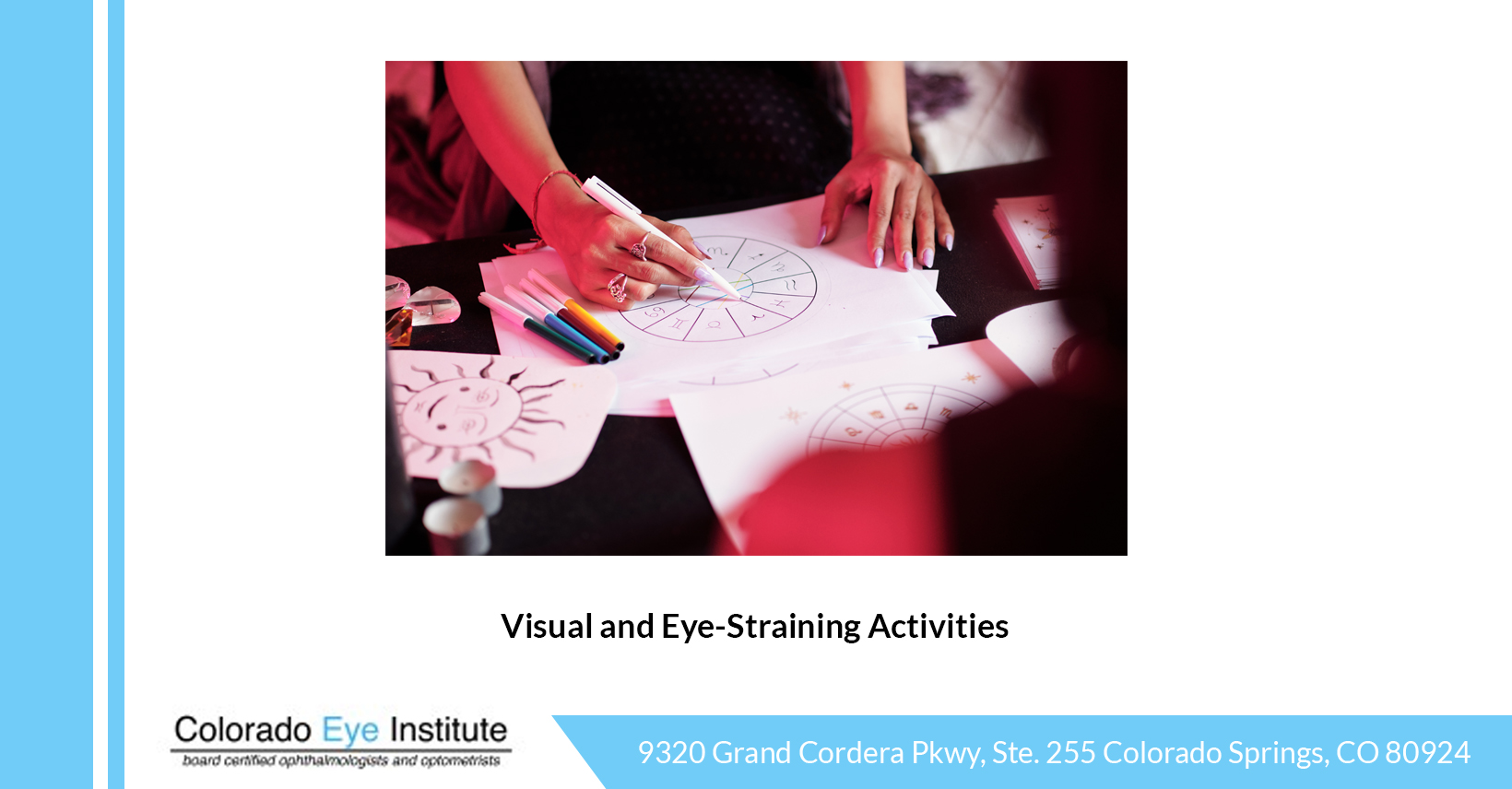If you recently had or are considering cataract surgery, there are certain activities that may affect healing and must be carefully considered during the recovery phase. After cataract surgery, taking the right measures ensures a speedy recovery and lowers the risk of complications. Understanding which activities to avoid after cataract surgery helps to protect the eyes post-surgery and supports a smooth recovery.

Understanding Post-Surgery Recovery
Cataract surgery recovery time usually takes a few weeks, with considerable improvements seen within the initial few days. To avoid infections and guarantee full healing during this time, it is essential to listen to the surgeon’s advice and follow the post-cataract surgery treatment guidelines. Avoiding certain activities and taking precautions can promote long term eye health.
Physical Activities To Avoid
To reduce eye strain and promote appropriate healing, some intense activities should be avoided. Activities to avoid after cataract surgery colorado Springs include:
- High-impact Sports: – Until the eye recovers completely, patients should refrain from activities like basketball, tennis, and jogging. During the recovery phase, stay away from activities like swimming and using a hot tub as these types of environments can introduce germs and raise the risk of infections after cataract surgery.
- Heavy Lifting And Intense Exercise: – Steer clear of heavy lifting and physically demanding activities that raise the pressure in the eyes.
- Bending Over: – The eyes may feel more pressure while bending at the waist. Consider, bending at the knees instead.

Visual And Eye-Straining Activities
Some visual tasks should be handled carefully since they could lead to eye strain.
- Screen Time: – Set a time limit for using mobile devices, tablets and desktops. Exposure to blue light could result in eye tiredness and may affect healing.
- Driving: – Do not drive until your vision has stabilized and an eye doctor has given the all-clear. After surgery, light sensitivity could occur for a few days.
- Reading: – Long periods of reading can be uncomfortable. Taking regular breaks is advised.
- Bright Lighting: – Steer clear of sunshine and bright lights. Sunglasses can help with eye safety.
Environmental Factors To Be Cautious Of
The healing process following cataract surgery is significantly influenced by environmental factors. Steer clear of windy, dusty, or dirty areas because airborne particles can irritate eyes and increase the possibility of infection. It is recommended to take extra steps to shield the eyes from harmful toxins when traveling, particularly when using public transit. Additionally, during the first several weeks after surgery, patients should avoid household tasks such as dusting or gardening. These activities frequently entail motions that put more strain on the eyes or introduce them to allergens and particles, which can make recovery more difficult. One easy yet efficient method to avoid infections after cataract surgery is to use protective eyewear.
Personal Habits And Routines
During the recovery phase, several individual habits should be changed:
- Application of Makeup: – Since eye makeup can contain bacteria that can cause illness, refrain from applying it until a doctor has given the green light.
- Avoid Smoking and Limit Alcohol Consumption: – It is best to abstain from drinking and smoking during the recovery period for cataract surgery. These substances raise the possibility of complications and delay the healing process.
- Showering Approach: – Use caution when taking a shower and refrain from getting water in the eyes for at least 10 days after surgery.
- Rubbing Eyes: – Rubbing the eyes increases the risk of infection by introducing germs and may remove stitches.

General Lifestyle Adjustments
Temporarily adjusting your day-to-day ensures a quicker recovery. After the surgery, wait until your vision stabilizes and the surgeon gives permission to resume your daily routine. Under expert supervision, a gradual return to normal activities encourages the possible faster recovery after cataract surgery.
When To Contact Your Doctor
After surgery, it’s crucial to keep an eye out for any odd symptoms. Seek medical help right away if you are experiencing these symptoms:
- Any odd discharge coming from the eye.
- Eye discomfort that is severe or persistent.
- Sudden loss of eyesight.
- Unexpected alterations in eyesight, such as blurriness or blindness.
- Severe discomfort in the eyes.
- Edema or increased redness around the eye.
Conclusion
Adhering to the recommended activities to avoid after cataract surgery and following cataract surgery recovery tips can ensure a smooth and successful recovery. Proper post-cataract surgery care and understanding cataract surgery do’s and don’ts are essential for protecting healing eyes. At Colorado Eye Institute, we are committed to providing comprehensive guidance and support for patients undergoing cataract eye surgery. With our expert care, patients can navigate the recovery period for cataract surgery with confidence. For those searching for cataract surgery Colorado Springs, trust our experienced surgeons at Colorado Eye Institute for exceptional care and personalized recovery plans.
